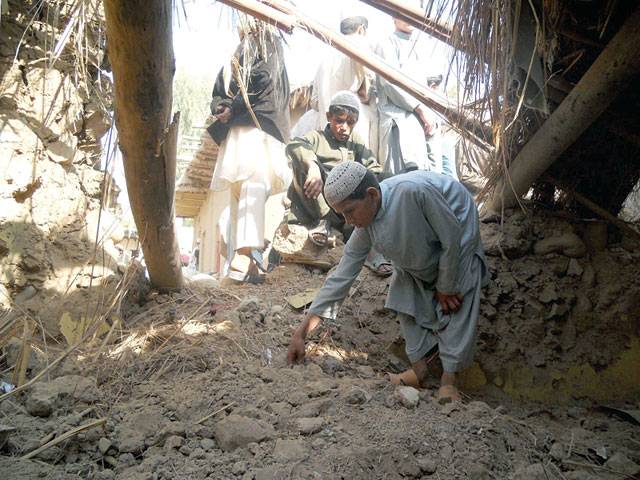Elliot Ackerman
With the passing of Veterans Day last week, I’ve been thinking about my first day as a paramilitary officer with the Central Intelligence Agency. I spent it filling out paperwork: a health-care plan, a Roth I.R.A., a parking-pass application, a stipend for child care. It was the summer of 2009, and I’d come to the CIA after a tour in the Marine Corps Special Operations. Having spent my entire adult life working for the federal government, I’d expected the paper chase, but mixed in with the forms, one stood out-Executive Order 12333, which includes this clause:
No person employed by or acting on behalf of the United States Government shall engage in, or conspire to engage in, assassination.
This seemed straightforward enough. Silenced pistols and cyanide-laced cocktails were for the movies; they weren’t the stuff of real intelligence work. So I signed the order. I was giving more thought to whether a rookie like me could land a decent parking spot at the agency’s headquarters, in northern Virginia.
Four months later, I began my initial deployment. I was stationed at a remote outpost in eastern Afghanistan. As a paramilitary officer, I trained and operated alongside a tribal militia, but worked at a base alongside a handful of non-paramilitary case officers. Our workspace was a windowless vault. I spent most of my days in the mountain air with our Afghan partners, shooting on ranges or preparing for raids. My colleagues stayed indoors, the toll of the months they’d been deployed showing in their sallow complexions. They were conducting operations, running agents across the border, to Pakistan’s tribal areas, but these occurred at night. By day, they sat at a bank of computers, planning out Predator drone strikes. Dossier upon dossier cluttered their desktops-Taliban senior leaders, Al Qaeda operatives, each one targeted for killing. For assassination.
Granted, lawyers with the CIA and the Administrations of George W Bush and Barack Obama had drawn up semantic arguments carefully delineating the difference between a targeted killing and an assassination. (Steve Coll wrote about Obama’s drone war in Pakistan for the magazine this week.) But when the picture of the person you were trying to kill sat on your desk; when you watched the Predator strikes light up the night sky just across the border; and then, when you took that same picture and moved it into a file for archiving, it sure felt like an assassination.
The discomfort of my colleagues, where it existed, didn’t stem from the act itself. Their dossiers were filled with details about Taliban commanders and Al Qaeda operatives-people we had identified as valid targets, who were known to have killed marines and soldiers in Afghanistan, or to have had ambitions to launch attacks in the US or Western Europe. The discomfort existed because it felt like we were doing something, on a large scale, that we’d sworn not to. Most of us felt as though we were violating Executive Order 12333. Everybody knew what was happening-senior intelligence officials, general officers, the Administration, even the American people, who ostensibly would not tolerate assassinations carried out in their name.
America avoids that word, “assassination,” because such actions are anathema to our ideals, but, having just marked the thirteenth Veterans Day since the post-9/11 wars began, there seems to be some reckoning with how those conflicts have changed our national identity. Much of that conversation has taken place in the arts, especially literature and film. Books like “Billy Lynn’s Long Halftime Walk” and movies like “Lone Survivor” offer widely divergent views of the wars, indicating a second struggle, for a narrative.
An important aspect of that narrative will be the clandestine nature of military action, which has become the hallmark of US involvement abroad. At home, accounts from secret operations are often anecdotal-a raid here or there, a terrorist attack foiled. But in increasingly large swaths of the world, this new type of warfare has come to define America. For people in countries from Syria to Yemen, from Somalia to the Philippines, our clandestine wars have become a part of daily life. The conduct of these campaigns has become a secret we keep only from ourselves.
I don’t regret our actions at that remote Afghan outpost. I do regret that, as a nation, we’ve chosen to cloak such actions in doublespeak, telling a lie of sorts-one that no longer seems to be directed at defeating our adversaries. But maybe by understanding that lie, we’ll come a bit closer to understanding the truth.–The New Yorker
Saturday, April 20, 2024
Assassination and the American Language

8:27 AM | April 19, 2024
8:09 AM | April 19, 2024
Pak economy improving, funds will be provided on request: IMF
9:57 PM | April 19, 2024
Minister advocates for IT growth with public-private collaboration
9:57 PM | April 19, 2024
Judges' letter: IHC seeks suggestions from all judges
9:55 PM | April 19, 2024
Formula 1 returns to China for Round 5
9:05 PM | April 19, 2024
Germany head coach Julian Nagelsmann extends contract till 2026 World Cup
9:00 PM | April 19, 2024
A Tense Neighbourhood
April 19, 2024
Dubai Underwater
April 19, 2024
X Debate Continues
April 19, 2024
Hepatitis Challenge
April 18, 2024
IMF Predictions
April 18, 2024
Kite tragedy
April 19, 2024
Discipline dilemma
April 19, 2024
Urgent plea
April 19, 2024
Justice denied
April 18, 2024
AI dilemmas unveiled
April 18, 2024
ePaper - Nawaiwaqt
Advertisement
Nawaiwaqt Group | Copyright © 2024





